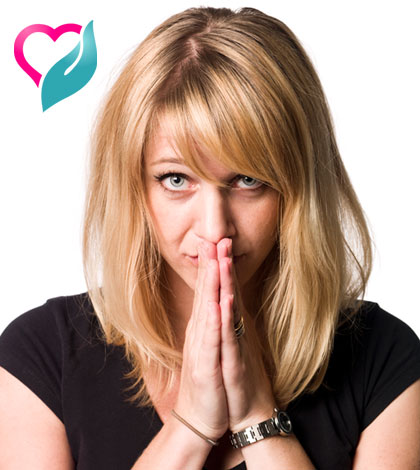I used to get annoyed when my teacher tells me not to bite my nails, especially when she returns my mark sheets. Sometimes I used to bite off nails until it bleeds. But when I moved towards adulthood, somehow the habit slowly vanished.
[wp_ad_camp_1]
Maybe I became less nervous and more confident. Nervous habits are often more annoying to the people around you than to yourself, but some types of fidgeting and fussing can do real harm. EHC digs more into the reasons why nail-biting, hair-twirling, and other seemingly harmless habits can be hazardous to your health.
Biting your Nails
When nail biting becomes a regular habit, it can damage both your nails and the skin around them. Germs from the mouth get transferred to the skin, and vice versa. Bacteria under the nails may also be transferred to mouth, causing infections of the gums and throat. Painting your nails may discourage you from chewing. Or try tape to break the habit.
[wp_ad_camp_4]
Twirling and Pulling Hair
Twisting and twirling a piece of hair around your finger can lead to damage to the root over time. This can result in temporary or permanent areas of hair loss as well as infection. Obsessive hair pulling may be a sign of a psychiatric impulse control condition called trichotillomania, which requires psychotherapy and medication.
Cracking Neck
Twisting your head forcibly to one side releases gases built up in the joints between vertebrae and creates a popping sound. Although this may feel good, repeatedly cracking your neck can make the surrounding ligaments hyper-mobile and more susceptible to injury. This may result in arthritis over time.
Touching Your Face
Repeatedly touching your face or picking at acne can damage the top very thin microscopic layers of the skin. If you bleed, you may have just created a permanent scar. Do not pick at pimples or itchy areas. Treat them gently with topical creams and plenty of moisturizing.
Grinding Teeth
Clenching and grinding your teeth (bruxism) when you are under stress can wreak havoc with your oral health. Grinding can cause teeth to crack or break, which may require repair with crowns or root canals. It can also result in damage to the jaw joint in the form of temporomandibular joint disorder (TMJ). People clench or grind their teeth as a response to stress. However, most cases are a result of pathology such as misaligned or missing teeth and a bad bite.
Licking or Biting Lip
Nervously licking your lips exposes them to your mouth’s digestive enzymes. These enzymes chew away at the skin and can lead to dermatitis and cheilitis (inflammation), which make lips appear dry and cracked. Biting your lips when under stress can cause the development of fibromas, firm flesh colored growths, that may require surgical removal.
Chewing Gum
All that snapping and popping does more than annoy your coworkers. It may also put you at risk for TMJ from overuse of jaw muscles. Sugarless gum presents a different set of problems, mainly digestive ailments. Sorbitol, an artificial sweetener, produces an unpleasant laxative effect when eaten in excess (18 to 20 sticks a day). Swallowing excess air while chewing also increases risk of a gassy stomach.
[wp_ad_camp_2]
Nibble the Ends of Pencils and Pens
Germs can lurk on the ends of pens so this habit can expose you to nasty pathogens including cold viruses. An infected person likely has the virus on his or her fingers and spreads it through pens as well as computer keyboards and telephones.
Crossing Your Legs
Sitting with legs crossed at the knee can bump up blood pressure. Leg crossing increased systolic blood pressure nearly 7% and diastolic by 2%. Frequent crossing of the legs also puts stress on the hip joints and can cause pooling of blood in the legs when the veins are compressed. EHC advises you to avoid crossing your legs for longer than 10 to 15 minutes, and to get up and walk around every half hour or so.
Standing with Locked Knees
It may feel easier to stand with your knees locked, but it increases stress on the knee joint. All of our joints are stabilized by activation of the surrounding muscles. When you stand with knees locked, you are no longer efficiently using the muscles that surround the joint. Consequently, forces to the joint are increased. When you stand, do so with your knees slightly bent.
Wearing Your Belt Tight
A tight belt may cinch your waist, but it can backfire on you in the form of digestive issues: Your snug belt creates intra-abdominal pressure, which can result in acid reflux (GERD). Symptoms of GERD can range from something as small as a bitter taste in the mouth, to a burning or pain in the chest or upper stomach region, chronic cough, or even difficulty swallowing. EHC recommends wearing your belts no tighter than the waistband of your pants. You should be able to inhale and exhale comfortably with the belt tightened.
Slouching
Slouching can lead to shoulder pain or impingement when the rotator cuff muscles (shoulder stabilizers) become compressed against the shoulder blade. Poor posture could also lead to a muscle imbalance that can contribute to further compression.
Driving Long Distances Without Break
Motoring for many miles without stopping can have a similar effect to crossing your legs, where you get blood pooling in the legs that can lead to clotting. After driving for about 100 to 150 miles, stop the car and go walk around to improve blood flow and reduce inflammation. Do the same when flying long distances.
Holding Off Urination
If you delay urination for prolonged periods of time, you may be putting yourself at risk for developing urinary tract infections. UTIs can result due to a woman’s shorter urethra and close proximity to the vagina. Bacteria in the urine can multiply very quickly, so holding urine for prolonged periods can lead to infections. Listen to your body.
[wp_ad_camp_3]
Image courtesy: algetler.com , daum.net






















